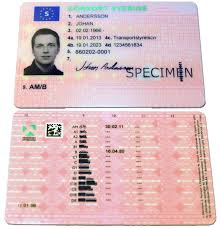5 People You Should Be Getting To Know In The C Driver's License Witho…
본문
 Obtaining a C Driver's License Without a Theory Test: An Overview
Obtaining a C Driver's License Without a Theory Test: An OverviewIn the world of driving, the procedure of obtaining a driver's license can differ considerably from one nation to another, and even within regions of the same nation. One of the key elements in many licensing procedures is the theory test, which evaluates a driver's understanding of traffic laws, road signs, and safe driving practices. Nevertheless, in some jurisdictions, it is possible to obtain a C driver's license-- or a commercial driver's license-- without having to pass a theory test. This short article explores the implications, requirements, and the prospective benefits of such a pathway.
 What is a c körkort online pålitligt körkort online lagligt Utan KöRprov (Nerdgaming.Science) Driver's License?
What is a c körkort online pålitligt körkort online lagligt Utan KöRprov (Nerdgaming.Science) Driver's License?A C driver's license normally refers to an industrial driver's license (CDL) that permits individuals to operate lorries that go beyond a particular weight limit, usually 26,001 pounds or more. This license type is vital for those pursuing careers in trucking, shipment services, and other industrial driving jobs. The requirements for getting a C driver's license typically include a mix of document confirmation, practical driving assessments, and in some cases theoretical understanding tests.
Circumstances Allowing for Exemptions
In certain jurisdictions, people may be qualified to obtain their C driver's license without taking a theory test under specific conditions. These circumstances might include:
Existing Licenses: Individuals who currently hold a legitimate driver's license might be exempt from taking a theory test when upgrading to a business license. This exemption acknowledges their existing knowledge and experience behind the wheel.
Military Personnel: In some cases, active military personnel or veterans might be given exemptions based on their driving experience and training received while in service.
State-Specific Regulations: Variations in state regulations could allow particular people or classes of applicants to bypass official testing. Some states may acknowledge prior driving experience, training programs, or completion of particular instructional courses as adequate proof of knowledge.
Age and Experience Requirements: Some jurisdictions might have age and experience requirements that, if satisfied, exempt candidates from taking the theory test. For example, people over a certain age with verified years of driving experience might not require to demonstrate more theoretical understanding.
Ramifications of Obtaining a C License Without a Theory Test
While the possibility of getting a C driver's license without taking a theory test might seem helpful, it's necessary to think about the implications:
Safety Concerns: Theory tests are developed to evaluate a person's understanding of road safety and policies. Avoiding this action might possibly raise issues about the readiness of new chauffeurs, specifically in industries where safety is important.
Marketability and Employment: Some employers in the business driving industry place a high value on candidates who have shown detailed knowledge through theory tests. Candidates without this accreditation may deal with challenges in securing desirable positions.
Legal and Insurance Implications: In the event of an accident or traffic violation, doing not have formal evidence of theoretical understanding could make complex legal or insurance coverage matters. Insurer may view chauffeurs who bypass the theory test as higher-risk.
Conclusion
Getting a c körkort online betyg driver's license without taking a theory test can provide a quicker path for some motorists, but it features substantial considerations. While certain exemptions might streamline the procedure, they can likewise trigger conversations about roadway security, the importance of education, and the obligations of commercial chauffeurs. As policies differ, it is essential for prospective drivers to comprehend their local laws and the possible ramifications of getting their licenses through alternative pathways. Eventually, one should weigh the benefit of giving up the theory test against the possible effect on security, employability, and legal responsibilities on the road.

